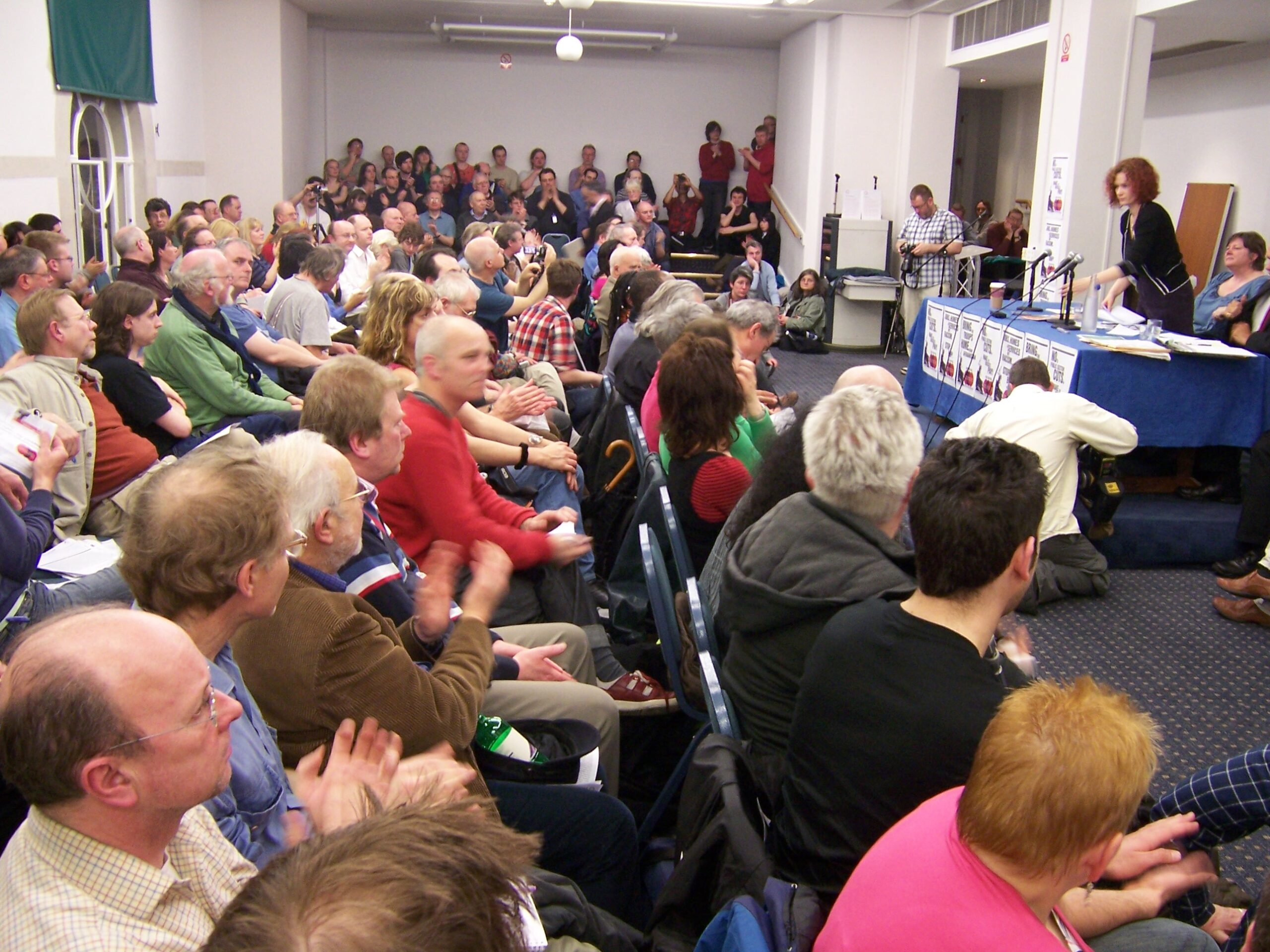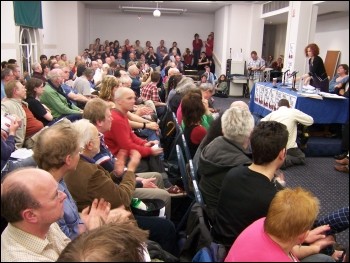The anti-cuts movement is going to find itself in opposition to all of the major capitalist parties whose position on cuts is virtually identical.
Even the leadership of the Tories and the LibDems have been surprised by how similar their programmes are and how easily they have united to implement cuts.
Nor is New Labour fundamentally different, as shown by the number of New Labour politicians – Frank Field, Alan Milburn and John Hutton – who have joined the new government as advisors – creating a large element of a national government.
Arising from this the question of a political alternative to the axe-men is bound to emerge. For some, achieving political representation for the working class may be relegated to a problem for a later day.
Nonetheless, there will undoubtedly be a growing demand for workers to have their own anti-cuts, socialist candidates.
Closely following the poll tax victory, Tommy Sheridan stood in Glasgow Pollok in the 1992 general election for Scottish Militant Labour (then the name of our sister organisation in Scotland).
He had never stood in a general election before and yet received 6,287 votes – 18% of the total. Six Scottish Militant Labour councillors were elected in the same period. Had we stood candidates in England and Wales during the anti-poll tax movement, there is no doubt we could have had similar successes.
It is not possible to predict exactly how the anti-cuts movement will find a political voice. However, the ground has already been partially prepared. The Trade Unionist and Socialist Coalition (TUSC) – involving the Socialist Party, other socialists and, crucially, an important layer of militant trade unionists – stood in 41 seats in the general election in order to prepare the ground for the development of a mass independent party of the working class.
As we expected, the pressure many workers felt to vote Labour to try and stop the Tories meant that the support TUSC received was not reflected in its vote.
However, over the next period we believe that TUSC can come into its own and, as a part of the anti-cuts movement, can act as a catalyst for the development of a new mass party of the working class.









